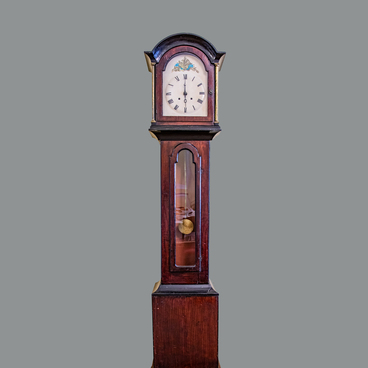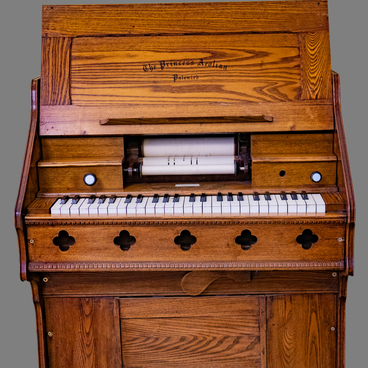The governess of the Tchaikovsky family, Fanny Dürbach, is depicted in the photo. She started working for them in October 1844. Dürbach was a 22-year-old well-educated woman who, as Modest Tchaikovsky said, ‘spoke both French and German well and was a strict Protestant who followed moral rules.’
The Tchaikovskys wanted the governess to teach their elder son Nikolai and Ilya Petrovich’s niece Lydia. However, her classes were attended not only by the Tchaikovsky’s children but also by children of other engineers — co-workers of Ilya Tchaikovsky.
Pyotr Tchaikovsky was only four and half and was too small to be taught. The composer’s mother Alexandra did not believe that early childhood education should be obligatory but little Pyotr begged her permission to attend the classes on the very first day. Alexandra Andreyevna could not resist and Pyotr began his studies.
As a result, by the age of six, Pyotr could freely read and speak French and German. “We lead a separate life from the adults, we only ate together. We had our own classes and games. In the evenings before holidays, we were upstairs, reading and talking. In summer, we had the carriage to ourselves and traveled around the fascinating surroundings of Votkinsk. On weekdays, beginning from 6 a.m., everything was strictly scheduled and we always kept regular hours. As the free time was limited, I insisted that the children should do physical exercises, because of that I argued a lot with Pyotr as he was constantly coming back to play on the piano after a lesson. He was obedient though and enjoyed running around with the others. But it was always necessary to direct him. If left to himself, he would rather play music, read or compose poems”, recalled Fanny Dürbach.
The governess kept Pyotr Tchaikovsky’s notebooks and early poems until the end of her life. She refused to give them to Modest, the composer’s brother, and only allowed to copy them for a Tchaikovsky’s biography.
The Tchaikovskys wanted the governess to teach their elder son Nikolai and Ilya Petrovich’s niece Lydia. However, her classes were attended not only by the Tchaikovsky’s children but also by children of other engineers — co-workers of Ilya Tchaikovsky.
Pyotr Tchaikovsky was only four and half and was too small to be taught. The composer’s mother Alexandra did not believe that early childhood education should be obligatory but little Pyotr begged her permission to attend the classes on the very first day. Alexandra Andreyevna could not resist and Pyotr began his studies.
As a result, by the age of six, Pyotr could freely read and speak French and German. “We lead a separate life from the adults, we only ate together. We had our own classes and games. In the evenings before holidays, we were upstairs, reading and talking. In summer, we had the carriage to ourselves and traveled around the fascinating surroundings of Votkinsk. On weekdays, beginning from 6 a.m., everything was strictly scheduled and we always kept regular hours. As the free time was limited, I insisted that the children should do physical exercises, because of that I argued a lot with Pyotr as he was constantly coming back to play on the piano after a lesson. He was obedient though and enjoyed running around with the others. But it was always necessary to direct him. If left to himself, he would rather play music, read or compose poems”, recalled Fanny Dürbach.
The governess kept Pyotr Tchaikovsky’s notebooks and early poems until the end of her life. She refused to give them to Modest, the composer’s brother, and only allowed to copy them for a Tchaikovsky’s biography.

